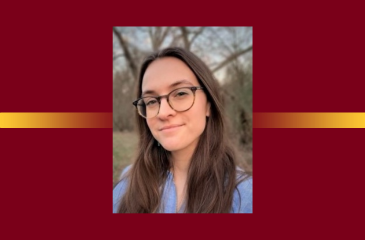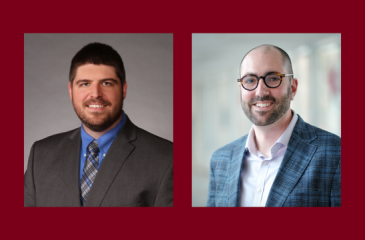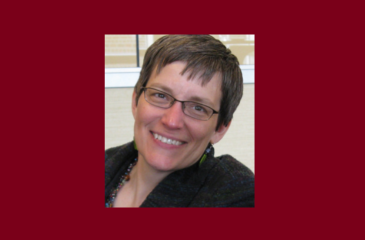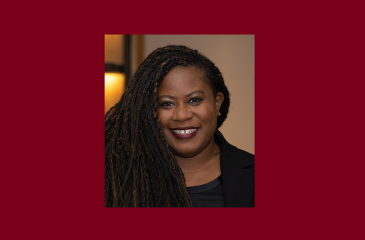Jaime Konerman-Sease recently joined us as a Clinical Ethics Adjunct Professor, a role in which she will clinical ethics services for the M Health Fairview System. Professor Konerman-Sease received her BA in Theology from Azusa Pacific University and is completing her PhD in Health Care Ethics and Theology at Saint Louis University. Keep reading to learn more about Professor Konerman-Sease.
What are you excited about in this role?
"I’m looking forward to collaborating with clinicians, chaplains, and ethics committee members on ethics issues and offering a helping hand in ethics discussions and dilemmas."
What does “clinical ethics” mean to you?
"Clinical ethics is the pursuit of a deeper conversation about the ultimate goals of our actions in healthcare. It’s asking why and for what end. Why do we use this particular technique, technology, or approach and how does it help us meet our goal in medicine to serve our communities through health and healing."
What interests you most about clinical ethics?
"I’m most interested in the relational dynamics at the heart of the clinical encounter. Trusting relationships are so key to a positive clinical encounter. How can our actions foster this kind of trust? What do we do now that inhibits essential relationship building? How can ethics impact the trustworthiness of a particular medical institution?"
Are there any trends in bioethics that inform your work?
"I’m most informed by a narrative bioethics approach. I do my best to incorporate literature or story into the world of medicine at any chance I get. Storytelling is so powerful, it can completely change how we imagine our current limitations and the possibilities that arise from those constraints. I am also very informed by the history of medicine. Often we think of the history of medicine solely as a bad thing - characterized by practices that harmed people like bloodletting or lobotomies. However, I think our history of medicine can also offer some helpful advice when we’re engaging in questions about the role of technology in medicine as well as confronting the reality of death and dying. I’m a big Jane Austen fan, and when I read her novels I see my interest in story and the history of medicine collide. I think her novels have a lot more to tell us about how we should care for our bodies and what that means for our communities than we might initially think."
What drew you to this work?
"Like many people who work within the larger orbit of healthcare, I was originally drawn to the idea of helping others. However, the day to day work of an ethicist is what made me realize this field was right for me. I love asking the hard questions and drawing a conversation about medical care and decisions towards the underlying goals, values, and beliefs that are always there yet sometimes unstated."
What advice would you give to students interested in bioethics?
"Spend as much time in a medical environment as possible; get to know the culture and context of medicine. Then, reflect on those experiences - what stood out as a positive experience that honored the human experience of life and death, what stood out as a negative experience where something was missing. Reflection is key to doing bioethics - we need to always ask why, for what reason, for which goal, and who does this benefit."
What is your life like outside of work?
"When I’m not immersed in the world of clinical ethics you can find me reading Jane Austen novels, knitting, sewing, making pies, taking care of my houseplants, and spending time outside with my partner."



